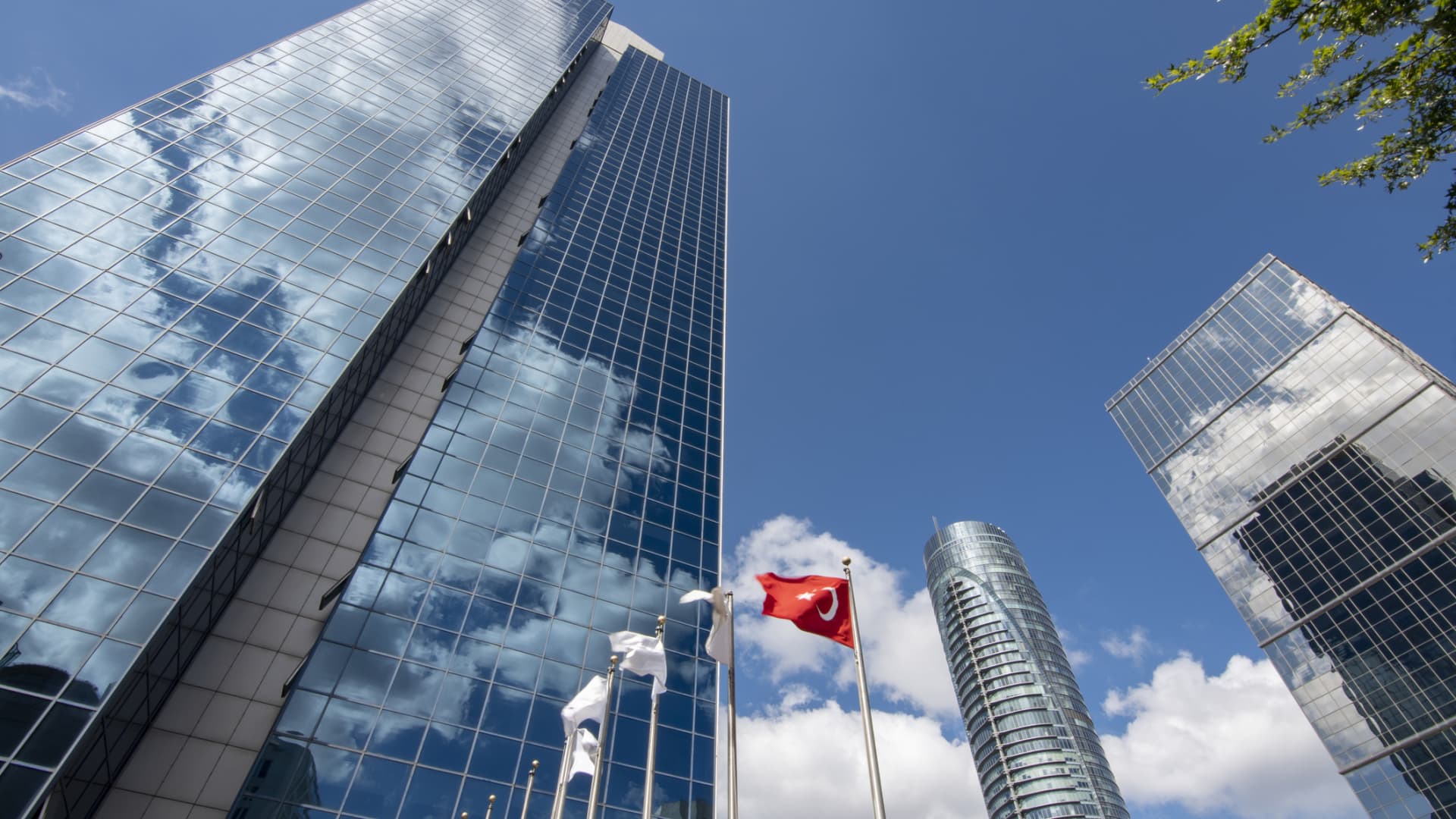Turkish annual consumer price inflation soared to 67.07% in February, the Turkish Statistical Institute said Monday, coming in above expectations.
Analysts polled by Reuters had anticipated annual inflation would climb to 65.7% last month.
The combined sector of hotels, cafes and restaurants saw the greatest annual price inflation increase at 94.78%, followed by education at 91.84%, while the rate for health stood at 81.25% and transportation at 77.98%, according to the statistical institute.
Food and nonalcoholic beverage consumer prices jumped 71.12% in February year on year and recorded a surprisingly large monthly rise of 8.25%.
The monthly rate of change for the country’s inflation from January to February was 4.53%.
The strong figures are fueling concerns that Turkey’s central bank, which had indicated last month that its painful eight-month-long rate-hiking cycle was over, may have to return to tightening.
“The stronger-than-expected rise in Turkish inflation to 67.1% y/y in February adds to our concerns given that it comes on the back of a large increase in inflation in January and the strength of household spending growth in Q4,” Liam Peach, senior emerging markets economist at London-based Capital Economics, wrote in a research note Monday.
“Core price pressures continue to run hot and if this continues, the possibility of a restart to the central bank’s tightening cycle will only increase in the coming months,” he said.
Some analysts predicted an eventual fall in inflation down to around 35% by the end of this year. According to Capital Economics, the latest figures “highlight that inflation pressures in the economy remain very strong and suggest that the disinflation process has taken a setback at the start of this year.”
Turkish Finance Minister Mehmet Simsek was cited by Reuters as saying that the country’s inflation would remain high in the first half of the year “due to base effects and the delayed impact of rate hikes,” but that the print would come down in the next 12 months.
Persistently high inflation has been fueled by Turkey’s dramatically weakened currency, the lira, which is at a record low against the dollar. The lira was trading at 31.43 to the greenback around noon local time on Monday. The Turkish currency has lost 40% of its value against the dollar in the past year, and 82.6% in the last five years.
“Obviously a disappointing set of inflation prints this morning,” Timothy Ash, emerging markets strategist at BlueBay Asset Management, wrote in a note. The Turkish central bank, he said, “has been trying to wind down the protected FX-linked deposit accounts and the need to rebuild FX reserves.”
He added that this development has “continued to put downward pressure on the lira,” creating an inflation pass-through.
Analysts note that Turkey’s policymakers wanted to avoid raising rates again, especially ahead of the country’s local elections on March 31. But relentlessly rising inflation may force them to hike again after the vote. Turkey’s key interest rate is currently at 45%, following a cumulative increase of 3,650 basis points since May 2023.
“Hopefully favourable base period effects should begin to create a more virtuous cycle from mid year. The CBRT might though need to further hike policy rates after local elections,” Ash wrote.





